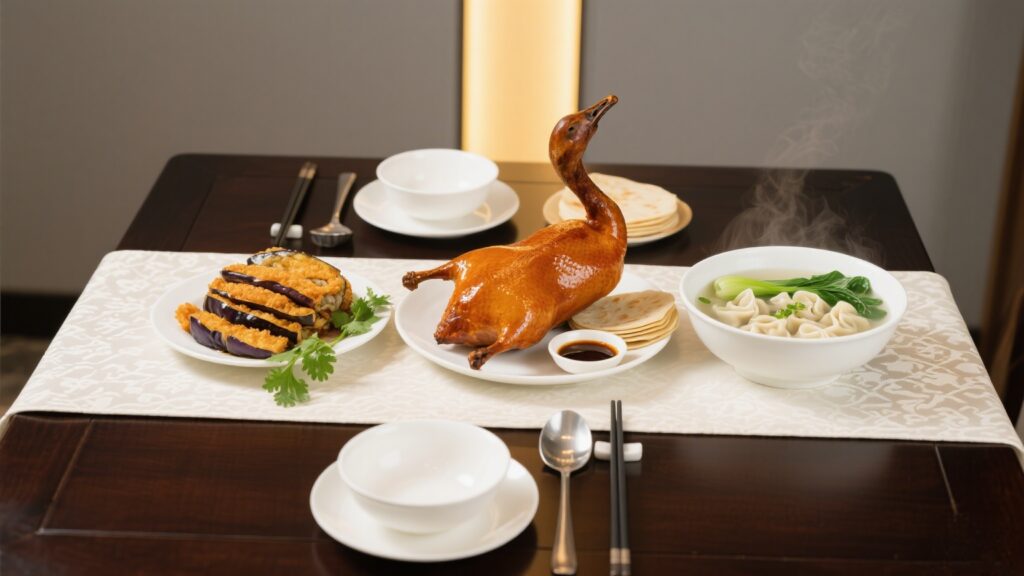
The Hungry Ghost Festival, also called Zhongyuan Festival, is a meaningful time for honoring ancestors and connecting with tradition. Food offerings are an important part of this festival, and each dish carries a deep cultural meaning.
1. Eggplant Fritters (茄饼)
- Made by shredding fresh eggplant, coating it with flour, and frying until golden.
- Believed to serve as symbolic provisions for ancestors on their way to the Ullambana gathering.
- Represents care and filial piety, ensuring ancestors are nourished on their spiritual journey.
2. Duck (鸭子)
- Eating duck is a widespread custom during the festival.
- The word “duck” (yā) sounds like “press” (yā), symbolizing pressing down restless spirits.
- Folklore suggests ducks serve as vessels to carry ancestors across the Naihe Bridge when they return home.
- Reflects both protection for the living and remembrance for the departed.
3. Bianshi (扁食)
- A traditional food made from flour and sugar, shaped like a small basket.
- Folk belief says eating bianshi drives away misfortune and attracts good luck.
- Highlights the festival’s forward-looking spirit: honoring ancestors while inviting prosperity for the future.
4. A Tradition of Nourishment and Meaning
- Food at the Hungry Ghost Festival is more than sustenance—it is memory, prayer, and hope.
- Eggplant fritters, duck, and bianshi are eaten not only for taste but also for their symbolism.
- Through these dishes, families strengthen bonds with ancestors while expressing wishes for peace and fortune.